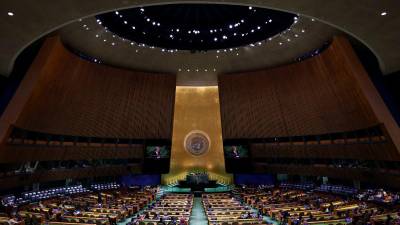PETALING JAYA: Reforming the United Nations Security Council (UNSC) is almost impossible without the consent of its five permanent members who wield veto powers, making it more realistic to strengthen the authority of the UN General Assembly (Unga), said geopolitical analyst Dr Azmi Hassan.
He said the Gaza conflict and other crises have exposed paralysis within the UNSC, with the United States, Russia, China, the United Kingdom and France routinely blocking resolutions that clash with their interests.
“The problem with restructuring the Security Council is that it requires agreement from the very same five nations that hold veto powers.
“This is almost impossible. As a result, the UNSC has failed repeatedly to act effectively on urgent matters such as Palestine and Ukraine,” he told theSun.
Azmi said the 10 rotating non-permanent seats add little weight since they cannot override vetoes, creating an imbalance that undermines the credibility of the council.
He said instead of pursuing an “unrealistic” reform of the UNSC, the General Assembly, which represents all 193 member states equally, should be empowered.
“If Unga resolutions are granted binding power similar to those of the Security Council, the UN could function more effectively.
“Unlike the UNSC, the General Assembly has no veto powers, meaning every nation has an equal voice.”
Azmi added that empowering the Unga would restore credibility by ensuring that decisions reflect the collective will of nations.
He was commenting on Foreign Minister Datuk Seri Mohamad Hasan’s address at the Unga, in which Malaysia called for the abolition or restriction of the Security Council veto.
